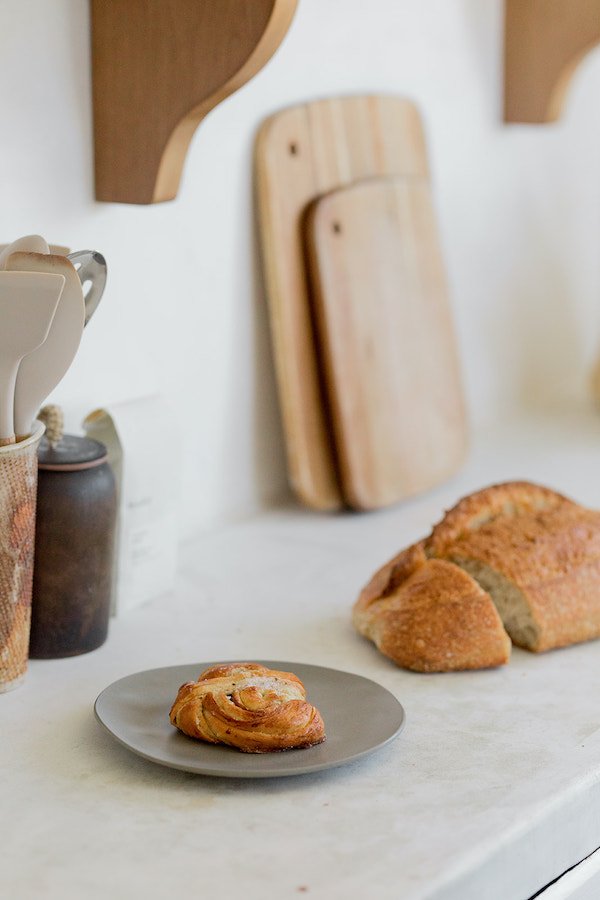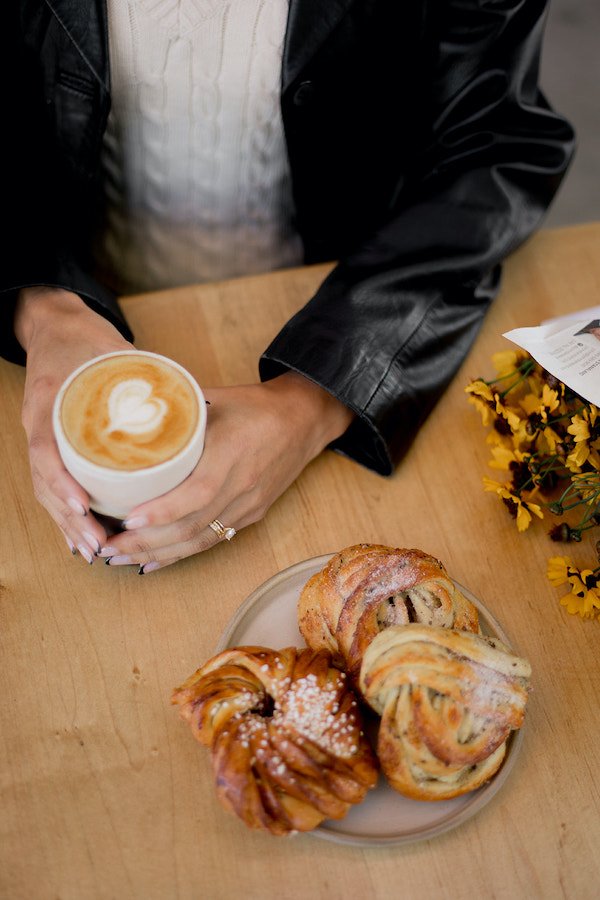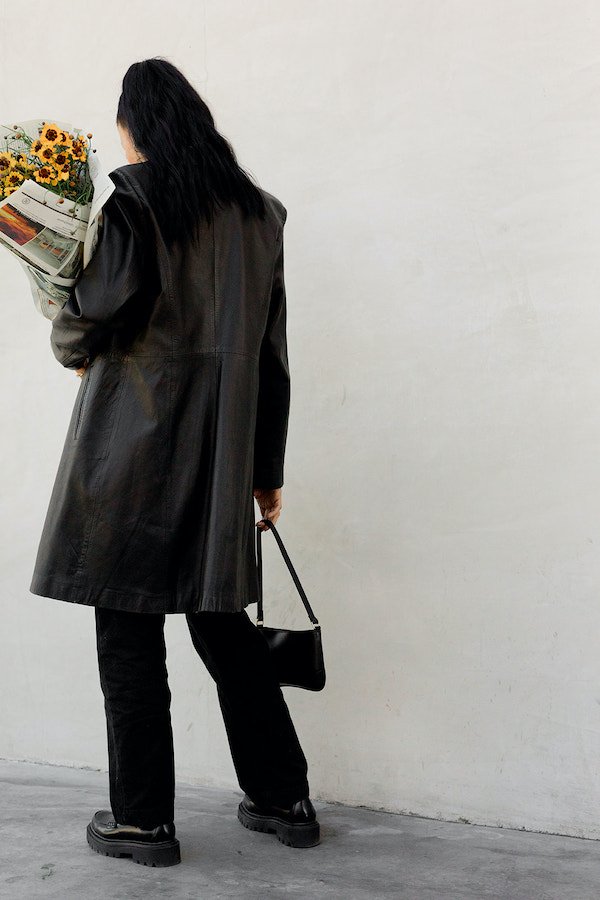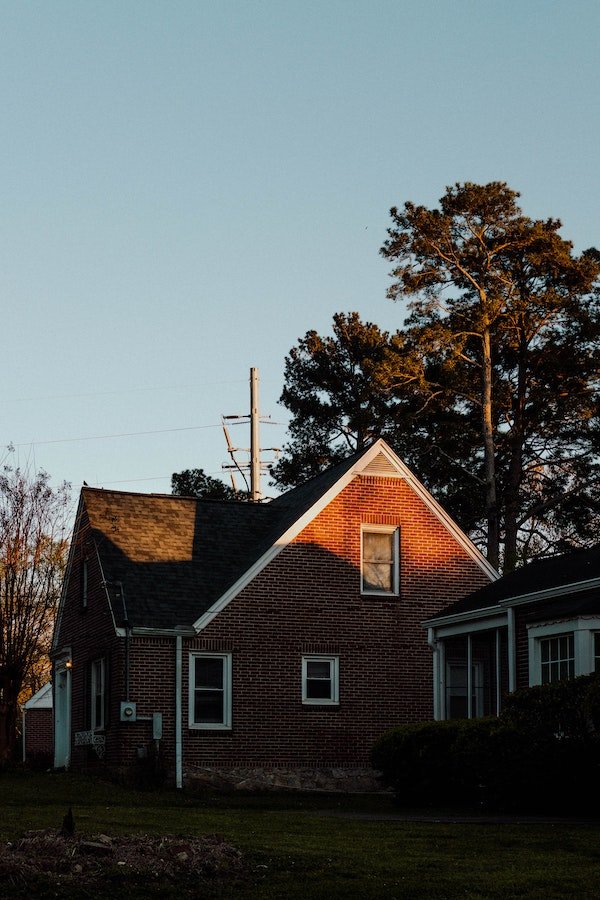
What I Learned From Quitting My Corporate Job To Work At A Bakery
I used to bring my laundry to Best Cleaners on 6th Street on Sundays. One large laminated grocery bag so filled to the brim with clothes that socks usually spilled out onto the sidewalk. Now, I bring my clothes to Laundry to You on Tuesdays where they accept two bags of clothes, whites separated from darks to be scrubbed and bleached. I throw my stained white chef’s shirt and batter-covered utility pants in one bag and my flour-splattered apron in another and drop them off early in a series of other errands that I’ve been neglecting.
The treadmills at the gym off Broadway are usually free by nine. Everyone with the discipline to exercise before work has cleared out to get to their desks. The grocery store on 14th is empty midday, and I make my way there to pick up ingredients and to linger in the empty produce aisles, fully stocked with the fruits and vegetables that will be picked over by day’s end. Cafés, on the other hand, are quite busy, with the work-from-home masses trying to escape the monotony of actually working from home. At a coffee shop on 3rd, I sip on bitter black coffee, read my book, and lament the cycles of days and weeks that once seemed uniquely and indubitably rational. But now Tuesdays feel like Sundays and Sundays feel like Fridays, which makes all other patterns and routines to which I once adhered feel strange and arbitrary.
“I hadn’t set out to go against the grain of traditional patterns and conventions.”
I hadn’t set out to go against the grain of traditional patterns and conventions. In some ways, my entire sense of self had sprung from their familiar structures. I appreciated how the linear path—the one that intersects good schools and good grades and large friend groups and large companies and corporate ladders—gave way to easily accepted definitions of success. I moved to New York after university, in a wave of my peers, swimming like salmon upstream from Charlottesville, Virginia. I took a job in public relations at a reputable agency, where I commuted a few times a week to a cold and dimly lit office in Brooklyn. And to an extent, I was fulfilled by this cycle. Working a 9-5 provided structure and routine and, although I languished sitting in front of my computer every day and craved to interact with people beyond those who I met over Zoom, I had standards to strive for and benchmarks to move toward. But after a while, those benchmarks began to blur, and I lost all sense of what I was working towards.
“We are taught, like tying our shoes and algebra, that there is a line between hobby and career that is not to be crossed.”
Since I was little, I have been baking. I baked Lucy’s lemon squares from the Charlie Brown cookbook and Greek butter cookies from recipes my grandmother wrote. But I had never truly considered it a viable career. We are taught, like tying our shoes and algebra, that there is a line between hobby and career that is not to be crossed. So I began working on side projects in writing and cooking, seeking fulfillment beyond the confines of what I accepted as my “reality” in the hours after five and on weekends. I baked cakes for friends to celebrate birthdays and Bon Appetit’s brown butter chocolate chip cookies to distract from bouts of depression. I baked to fill some void that working a corporate job had carved into me. I came up with recipes for gluten and dairy-free banana breads in fall and citrus rhubarb cakes in spring, baking foods that would make me feel good. And I shared these recipes on a blog that few people read and on an Instagram account separate from the one my friends followed. My dedication to my side projects would ebb and flow in equal and opposite proportion to the demands of my day job. When I didn’t feel like baking, I would embark on an insatiable hunt for the best pastries in New York, looking for crispy baguettes and flaky scones and buttery croissants at local cafés where I would sit and read and daydream about one day owning a café myself.
“My dedication to my side projects would ebb and flow in equal and opposite proportion to the demands of my day job.”
People often talk about “making the leap” in regard to any big life change. But quitting my corporate job was more a series of small, incremental steps than it was a plunge into brisk waters. I found Smør Bakery in the same place many people seek inspiration: Tik Tok. A video suggested it as one in a long list of “East Village hidden gems.” I was instantly drawn to its warm salmon-colored walls and stripped wood bookshelves which hugged the small space like a blanket in winter. And its Danish-style cinnamon rolls reminded me of the semester I spent in college in Paris and filled me with a sense of nostalgia. I went in the next day and asked for a weekend job as a barista, having missed my days working in coffee shops in college since they had ended upon graduating last year.
In my early weeks working at the bakery, I kept working at the PR agency, seeing my weekend gig as an opportunity for fun more than anything else. I loved getting to know my coworkers and the cast of regulars who stopped in for black coffee and fresh bread. I was often greeted by the excited smiles of customers drunk on the smell of freshly baked cardamom buns which wafted through the bakery, their happiness reminiscent of children on Christmas morning. I watched with wonder as the small team of bakers labored over laminated dough and rolled buns of brioche, baked daily. When I asked my bosses if I could swap my weekend shifts up front for those in the back-of-house, I was looking to bridge the gap between the joy of the customers and the pastries which was its source. And I was looking for a happiness of my own.
“Until recently, I felt like I was waiting for happiness to come to me.”
Until recently, I felt like I was waiting for happiness to come to me. To reveal itself like some prophetic sign. If I had found that happiness came in the form of a promotion or a raise or a house with a white picket fence, my life probably would be going very differently. But I found happiness in the bakery at Smør, cutting butter into flour, rolling doughnuts and cookies, washing dishes and mopping floors, discussing food and life with my coworkers. I took comfort in a new kind of routine, starting my days sifting flour for scones and ending them in the quiet corners of the empty bakery in the evenings, blaring music as I swept the concrete floors. I found joy in ticking off the tasks written on daily to-do lists—laminate, shape yeasted dough, bake off cardamom buns and dust with sugar. It’s a more present pursuit, and I no longer feel daunted by a long future of ticking off the certain, more traditional markers that I felt were expected of me. Because happiness, I am coming to realize, is not passive. As soon as I stopped waiting for happiness to come, I was able to move toward it with the fervor that I had once moved toward traditional ideals of success. So about a month into working weekends as a baker, I decided to quit my corporate job and become a full-time baker.
“Upon quitting my corporate job, the edges of my life softened.”
Creativity, I have learned, is not just a muscle I could flex. It has slowly become my most important value, replacing those of money or “success” that I had previously known and bent my life towards. However, seeking creative fulfillment within rigidly structured institutions is an intrinsically contradictory pursuit that left me frustrated and burnt out. Upon quitting my corporate job, the edges of my life softened. I can now piecemeal my days with perfunctory tasks like laundry and the gym and creative pursuits like writing and baking. Whether it be that creativity is the source of my happiness or that the pursuit of happiness forced me to think more creatively about my life, is a situation of chicken and egg. But I am grateful every day that quitting my corporate job has allowed me to step off the traditional path and find myself barreling around in this infinite cycle of true, personal gratification.
Sara Keene is a writer and publicist living on the Lower East Side. She came to New York in fall by way Charlottesville, graduating from the University of Virginia with a Bachelors in political science and English literature. Originally from outside of Boston, her writing centers around the changing of seasons, growing up, and holding out hope we never have to.



